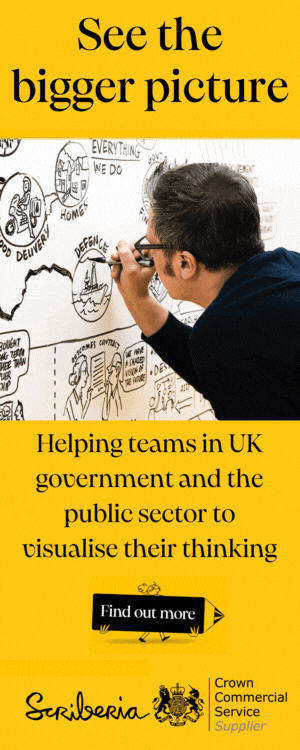
When it comes to tech solutions for HR, not all are created equal. Michael Howard, founder and Managing Director of Frontier Software talks about the benefits of an integrated HR solution Tech-based solutions are an integral part of every HR professional’s working life.
Across the hire-to-retire cycle, there’s no question that many functions have been made far easier by purpose-built technology. That said, not all solutions offer an equal quality of service for HR professionals. Michael Howard, founder of Frontier Software, cautions that buyers need to be aware of the specifics of their purchase before signing a contract.
“Since I started working in IT in the mid-1960s, there have been two critical considerations,” says Howard. “Security and auditing – they were important then and they’re important in 2020.”
In the past, manual HR systems were time-consuming and lacked transparency between departments. There was little insight into how and when records had been adjusted, which created additional problems. “It was much easier for departments to hoard information, creating a siloed environment,” says Howard. “These days, it’s totally unacceptable. Relevant stakeholders must share data and their actions with that data must be captured… security and auditing should be a key consideration for any new solution.”
Central to security is compliance. Solutions should enable secure access protocols and the organisation be ISO compliant, e.g. with ISO 27001 and ISO 9001. Transparency is also critical; while not all staff will require access to the information stored within the system, it is essential that HR can see when records have been added, modified or removed. Systems must have an audit capacity that ensures the ‘before’ and ‘after’ state when data is changed is recorded.
“Agility is a critical consideration these days too,” says Howard. “Your solution should be easy to customise without requiring expensive IT support, and vendors should be able to move you from cloud-hosted to in-house – or vice versa – depending on business conditions.”
Integrated vs multi-vendor
With these considerations in mind, Howard favours integrated solutions. But, he also cautions that not all ‘integrated’ solutions are actually that and buyers need to do more investigation before making a final decision.
“We need to be clear what integrated means, because we are very often referring to interfacing instead. ‘Interfacing’ means that two or more different systems can communicate with one another in very limited ways,” says Howard. “What a number of providers are doing, however, is describing a combination of disparate white label software as ‘integrated’ when the solutions can actually only interface with each other.”
A properly integrated solution should be end-to-end and built into the very core of the system. So, if an employee exists in HR, they also exist in the payroll, time and attendance or performance management systems, because the solution is a single one.
Interfacing with other programs should be a standard feature for any solution, but it shouldn’t be a requirement for operability. “The big advantage of seeking an integrated solution is commonality,” says Howard. “Integrated solutions will have common interfaces, reporting tools, menu structures and security access methodology.”
Perhaps most importantly, integrated solutions use a single database, significantly reducing the potential for error and data duplication when compared to a solution that requires multiple databases.
“Once again, it comes back to security,” says Howard. “Who really ‘owns’ the data? Where is the ‘source of truth’? When you’re working across multiple databases, it’s pretty easy to see how issues can creep in.”

Similarly, an integrated solution enables transparency – audit controls can easily identify who did what and when, rather than having to scour through multiple programs and providers to get to the root cause of an issue. Howard also points out that white label solutions will have different user interfaces and potentially separate help desk contacts, which can also be problematic.
“Disparate reporting tools, disparate security implementation methods and disparate audit controls all present real risks in multi-software solutions,” says Howard.
White labelling is also inherently reliant on the multiple vendors’ products being compatible with one another at the time of the solution being offered, Howard notes. A change of technology platform from any one provider can cause discrepancies in the future. Data structures also change along with their interfaces and there’s not necessarily clarity around who is responsible for the costs associated with amending and paying for enhancements to both systems.
Of course, Howard is well aware of the challenges that HR leaders face when selecting systems. Cost is a huge consideration and it’s entirely possible that management will be looking to opt for the cheapest, irrespective of other considerations.
“As an HR professional, you are a business leader,” says Howard. “So, you need to think in those terms when you’re approaching management for an investment – you need to be able to demonstrate that there is an ROI.”
Ultimately, Howard believes, the critical factor is to ensure that you will have a solution that benefits the wider organisation as a whole. “There’s no point in investing in a solution if it’s not going to deliver according to the needs of your organisation,” says Howard. “You need to ensure that you’ve got the right tools at hand for the long term and I’m a staunch proponent of integrated solutions being the best means of achieving that, provided you’ve got the right partner alongside.”
About the author: Michael Howard is the founder of Frontier Software, a company he has spent nearly 40 years building. Born in the UK, Howard began a career in IT, steadily working his way up from computer operator to a project manager installing banking systems globally at the age of just 28. After moving to Australia in 1978, Howard worked in IT consulting roles in HR. The combination of IT and HR generated a kernel of an idea that grew to become the award-winning Frontier Software ecosystem. Today, Frontier Software is a global organisation with over 1,700 customers in 26 countries and offices in Australia, India, Malaysia, New Zealand, the Philippines, Singapore and the UK.
Further information:
0845 370 3210
sales@frontiersoftware.com
www.frontiersoftware.com








